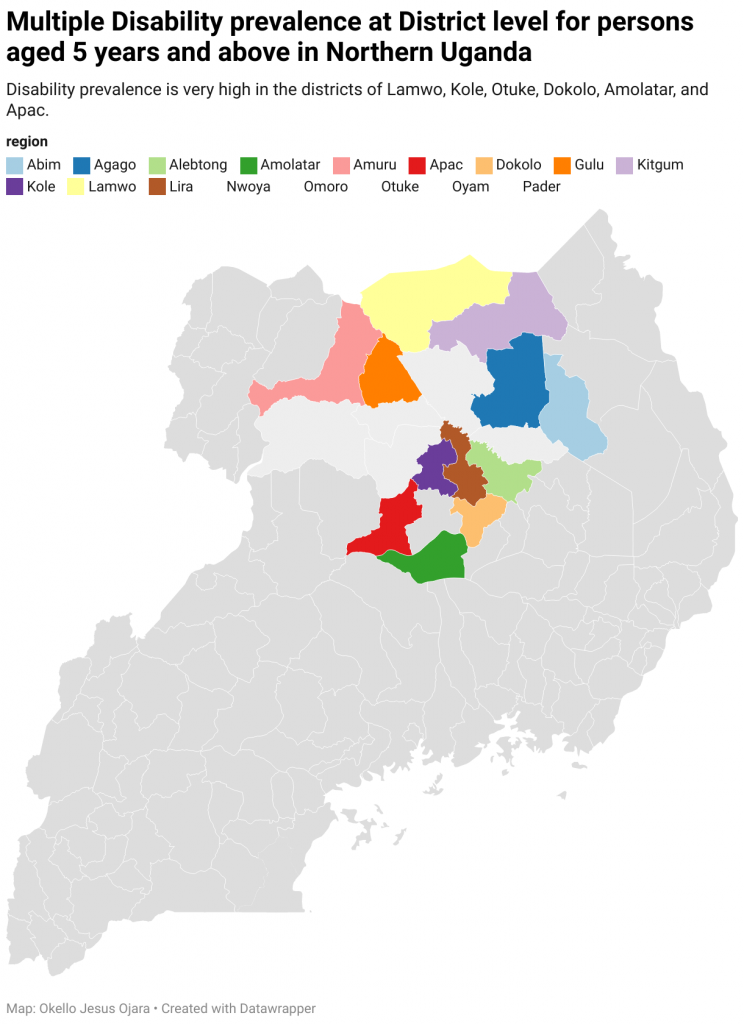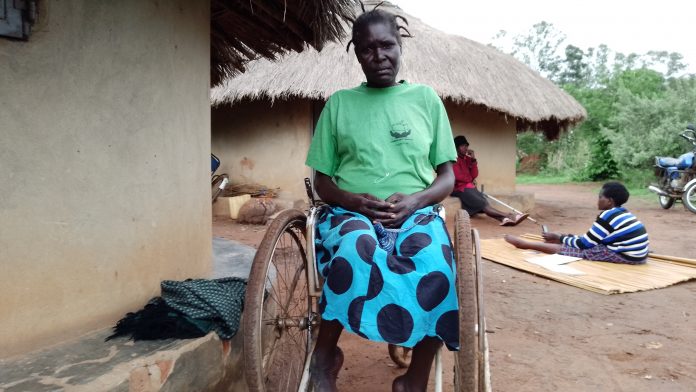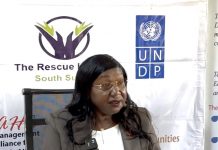By Okello Jesus, Gulu Uganda
When labor pains hit her during the final hours to deliver, Anek gathered a few belongings and trekked for three miles to Gulu regional referral hospital.
But to her surprise, the expectant young mother was received by a nurse who subjected her to all sorts of demeaning questions, all related to her state of disability.
“The nurse left me on the floor and went to do her own things and I struggled to deliver my first son. By God’s grace, I safely delivered him on the floor without any assistance from the midwife,” recounted Anek.
Anek was struck by the deadly polio virus at a tender age which crippled her, making mobility difficult.
Struggling to hold back tears of a sad memory, she narrates that the midwife shouted at her when she returned asking: “Why did you deliver alone? Do you want me to lose my job? Why do you want to give birth if you know that you are disabled?”
When she thought that this could have been a one-off incident, fate repeated itself when Anek conceived the second child two years later.
She says that when she went for antenatal care, no one attended to her that she got discouraged to go for subsequent visits.
“I went to the hospital, on one attended to me and later when time for delivery came, I went back to the hospital but I was again mistreated,” disclosed Anek.
“They said climb up the delivery bed. They knew I couldn’t climb the bed, so I silently picked and laid my plastic mat on the floor and delivered my child from there.”
Pregnant women with disabilities in Uganda say they have a hard time accessing public health care because of nurses’ negative attitude toward them and lack of ramps, doorways and beds designed to accommodate their needs. Private hospitals offer better services and facilities, but staff acknowledge that many women with disabilities cannot afford to deliver at them.
The government has begun constructing women’s hospitals that include facilities to accommodate the special needs of pregnant women with disabilities.

https://app.datawrapper.de/map/N63QP/publish#:~:text=https%3A//www.datawrapper.de/_/N63QP/
CEHURD findings.
This leaves many women with disabilities struggling to access maternal healthcare contrary to the UN Convention on the Rights of Persons with Disabilities which requires state parties to recognize that persons with disabilities have the right to the enjoyment of the highest attainable standard of health without discrimination.
The convention further mandates the states to provide persons with disabilities with the same range, quality and standard of free or affordable healthcare and programs as provided to other persons, including in the area of sexual and reproductive and population-based public health problems.
Continuous advocacy
In a quest to improve the quality of maternal healthcare received by women with disabilities, Teddy Aciro Luwa, Chairperson, Gulu Women with Disabilities Union has called for continuous advocacy.
“Some health workers judge women with disabilities through their appearance when our fellow women visit the facility and they treat us differently as compared to other women,” she complained.
“We are also doing continuous advocacy for adjustable beds at the different health facilities within Northern Uganda, especially in the districts of Gulu, Amuru, Nwoya, Omoro, and Gulu city among others,” she said.
There are over 8,000 women with disabilities registered as members in the union, however, Denis Lakwonyero Ocen, District Councilor representing persons with disabilities in Gulu district has urged the communities to back up the union in advocating for equal treatment of persons with disabilities within the district and region.
“We have to come out as a team, all stakeholders and implementing partners, let’s support this common course to see that persons with disabilities receive equal treatment both at the health centers and in the community,” Ocen said.
In 2020, the Government of Uganda passes the Persons with Disabilities Act (2020) based on the human rights model and it uses the same rights for persons with disabilities and establishes the fundamental freedoms and human rights for persons with disabilities.
The new Act also lists a range of impairments and includes several categories that are seen as specific to the Ugandan situation, including “little people” and persons with Albinism. It also allows for medical determination of a disability if necessary.





